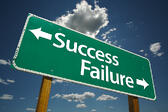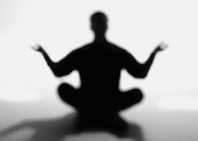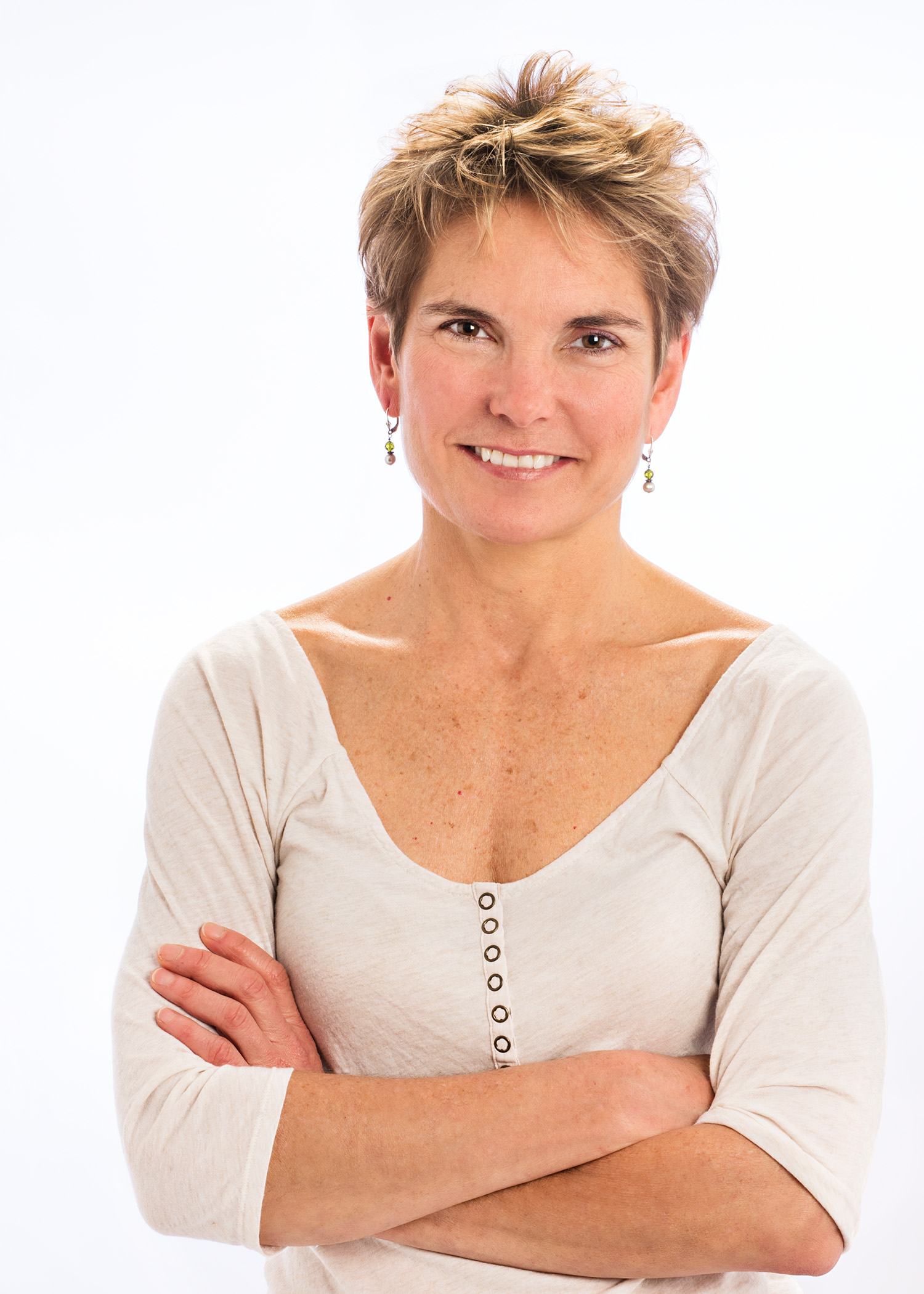
Conflict with someone you care about (or have to work with), can make the stakes for satisfactory resolution very high. How you handle the situation affects not only how you feel about yourself, but also how the other person feels about you. Swallowing your needs may lead to resentment. Lashing out may damage the relationship.
So how do you speak up for yourself, listen to the other person, and manage to keep an openhearted connection when you are in the middle of a heated disagreement?
Deepak Chopra says that through mindfulness, we can begin to develop ”the ability to calmly and objectively observe a situation, acknowledge when we are being triggered and choose how we want to respond. Instead of feeling stuck in knee jerk reactions and conditioned patterns of behavior, we free ourselves to make choices that will help us fulfill our deepest desires for love, fulfillment and happiness.”*
That really resonates for me. There are several mindfulness practices, including self-empathy that help me to consult my heart before acting on emotion. In so doing, I get the chance to express myself with compassion– for myself - as well as for the other person, rather than responding out of anger, guilt or fear.
Following this path doesn’t mean giving up on what you want. It also doesn’t mean ignoring the needs and wants of the other person either. Considering both sets of needs is important when you care about the relationship.
At times when it seems easier to clam up or lash out, consider whether either of those actions will deliver a peaceful, satisfying result. When the answer is no, investing the energy to calmly engage can be worthwhile. Once committed, here are some tips that can help guide you through a connected interaction:
- Take time to self assess. A deep breath and a brief time-out may enable you to connect with your feelings and needs. Sometimes saying, “This issue is clearly very important, and I really want to talk about it with you. Can you give me a minute to get my thoughts together?” may be just what you need to center yourself.
- Focus on the issue, not the person. Avoid name-calling and personal attacks to reduce the likelihood of hurt feelings.
- Acknowledge feelings. Respectfully listen and acknowledge the person’s feelings, either verbally or by giving them undivided attention. Be careful not to tell someone that he or she “shouldn’t” feel a certain way. Also try saving your point of view until after the other person knows that you understand how intensely they feel about the issue, even if you don’t agree with their point of view.
- Try curiosity not defensiveness. Avoid defending yourself by proclaiming innocence, or rightness, or by attacking and blaming the other person. This escalates a confrontation. Instead, ask for more information, details, and examples. There is usually some basis for the other person’s complaint and these questions can lead to a better understanding of what the issue is.
- Give/Ask for specifics. When you or the other party has complaints, ask for (or give) specific examples so you can both get greater clarity.
- Find points of agreement. Usually, a conflict has points of agreement. Seek places where your needs match the needs of the other person. Finding common ground, even if it’s simply agreeing that there is a problem, can contribute to a solution.
- Consider many options. Invite collaboration and resolution by offering and asking politely for suggestions and alternatives. Carefully consider each suggestion and be open to trying an approach you might not have previously considered.
And remember, with any important relationship, conflict resolution is not about winning. It’s about taking care of you while seeking solutions that meet needs for all involved parties. Take a deep breath - and good luck
*Quotation from Oprah Winfrey's 21-Day Relationship Meditation Challenge document Day 16.
Tags:
relationship,
heart,
collaboration,
compassion,
curiosity,
clarity,
love,
free,
conflict resolution,
meditation,
Oprah Winfrey,
avoid escalation,
mindfulness,
stressful,
Tips,
teleseminar,
Deepak Chopra,
resentful,
happiness,
resolution,
fulfillment,
emotion
I was recently sharing a story about three successive relationship changes I’d experienced when my friend observed that in fact, it seemed that each time I engaged, I learned more about what it is that I really want. I was instantly reminded of the wisdom of Goldilocks and how much I enjoy the first part of her story.
 If you recall, in the opening sequences, Goldilocks figures out how she is feeling (hungry and tired) and looks to meet her needs. To do so, she goes exploring and finds an empty house that offers various options. She tries a little of each option, only to discover that there is one solution that works better for her than the others. Specifically, while one of the porridges is too hot, the other, too cold - there is one that is just right.
If you recall, in the opening sequences, Goldilocks figures out how she is feeling (hungry and tired) and looks to meet her needs. To do so, she goes exploring and finds an empty house that offers various options. She tries a little of each option, only to discover that there is one solution that works better for her than the others. Specifically, while one of the porridges is too hot, the other, too cold - there is one that is just right.
Isn’t that true about life? We don’t always know exactly what will meet our needs, so we may need to try a few different things to figure out what is just right for us. I love that idea. First we have to see how we feel, decide what that tells us about what we want and then we begin to research how we might fulfill our desires to create a life we love.
Instead of considering the things we try (and decide not to stick with) as wasted time, perhaps we can see them as critical steps along a path that informs us about our “right” path. Maybe that is why many second marriages or second careers can be more fulfilling than the first. It takes time to know who we are and what we want. Not only that, but our feelings and needs may also change over time. That requires us to engage in exploration many times over our lifetime in a variety of ways in order to determine where we want to go next. In short, experimenting and starting over, is a proven method for informed, creative life-long problem solving.
The places that the Goldilocks’ story breaks down for me, is the second half AND where she invades someone else’s belongings to get what she needs. There are endless opportunities for self-discovery that don’t involve coveting or destroying that which supports others.
So while the tale of Goldilocks’ wanderings offers some great insights, it could use a rewrite.
Why ruin the beautiful lesson about the value of exploration by intimating that our personal journey must disturb or even destroy someone else’s environment? When we explore, we don’t necessarily break other people things or use up all of their resources. In fact, many of our explorations benefit others and help them along their path of discovery. Rather than focusing our inner stories on punishment and shame because we might mess up someone else’s stuff, let’s focus on the benefits of searching for what fits us best.
One of the privileges of growing up is that we get to author our own stories. So, let’s figure out how to explore in ways that add to the lives of others. Believing that trying things out will result in punishment is simply a children’s story; one that is desperately in need of a rewrite.
Tags:
love,
needs,
desires,
punishment,
creative,
problem solving,
wisdom,
relationships,
life,
insights,
rewrite,
exploration,
feelings,
self-discovery,
beautiful,
discovery,
shame,
lesson,
careers,
Goldilocks,
life-long
 “If you were sure you would succeed, what would you do in your life?” is a question that almost always provokes a very clear and meaningful answer from coaching clients who say they feel stuck and they aren’t sure what they want.
“If you were sure you would succeed, what would you do in your life?” is a question that almost always provokes a very clear and meaningful answer from coaching clients who say they feel stuck and they aren’t sure what they want.
This no longer surprises me. Somehow, taking the possibility of failure out of the equation frees us to dream and to dream big. It happens time and time again, because in short, most of us are afraid to fail. It is astonishing how a four-letter word can wield so much power over our lives.
Perhaps it is a stigma that we start learning in grade school that comes with the fear of failing to pass a subject or a test. These early encounters teach us the habit of imprisoning ourselves with terror and shame should we be called out for failing. I prefer to frame the word according to actor Gary Bussey’s definition: “You know what 'FAILING' stands for? It stands for 'Finding An Important Lesson, Inviting Needed Growth.”
When I think about what it means to fail, I think Bussey is right. Isn’t trying and failing and then trying again how we learn our most basic and meaningful lessons, like walking, talking and riding a bike?
Certainly, when we are learning a new sport and we make mistakes, we don’t consider ourselves to be failures. We expect that we will keep working and honing our skills – or we may decide that we don’t have any skill in a particular sport or a subject and we will try something else. Its’ all a learning process that we readily accept – and yet, when the stakes get higher, like when we are pursuing a lifelong dream, so often the dread and anxiety of failure keeps us from moving forward.
So when we conceive of the word “failure” as a shameful label it seems to assume that we only get a limited number of tries at something or that there is only one acceptable solution. It gives us no credit for learning and for gaining valuable experience over time.
To that end, can we reframe how we use the word “fail”? What would it be like to strike the word from our vocabulary? Imagine if our report cards could say, “incomplete knowledge “when we don’t pass a subject or a test. Or, maybe they could say, “more progress required for completion. “
For me that approach feels more motivating. Suddenly, “I’m no good at math,” becomes – “Maybe I can go back and explore that subject in a different way.” The language shift offers us an invitation to continue to pursue, rather than shaming us into hiding and hopelessness.
And I also realize that you may be one of those folks who openly embrace failure. That is awesome! Perhaps you can be a role model for the rest of us. According to Inventor Thomas Edison, “Many of life's failures are people who did not realize how close they were to success when they gave up.”
My hope is that you won’t be one of the people that Edison is talking about. Keep the faith. Giving-up is how we fail.
Tags:
anxiety,
coaching,
Gary Bussey,
Thomas Edison,
giving up,
failing,
lessons,
dread,
motivating,
power,
stuck,
dream,
succeed,
shameful,
hopelessness,
progress,
fail,
failure

As a career and wellness coach, I talk to clients all the time who want to feel happier and more successful in their lives. Maybe they have to pick a college, a job, or decide whether to stay in a relationship. Most of the time, they start from the outside and try to force fit themselves into something they aren’t good at or they don’t enjoy. They do it for the money, or to please mom or dad or to avoid being weird. Often, they choose organizations that aren’t supportive of them, or surround themselves with people that don’t or can’t appreciate them for who they are. If any of this sounds familiar, (about you or someone you know) then here are five suggestions to consider:
1) Know who you are.
Get clarity about what you are good at, and also about what do you love to do. Consider all your skills and love. None of them are too small or too insignificant to count. Figure out if, or where those characteristics overlap. Maybe they don’t. On the other hand, how might you include both in your life? Could you put them together in a new and different way to invent something unusual? For example, maybe you are a skilled accountant and love listening to music, could you become an accountant for a radio station, a band or a performing arts organization?
2) Embrace and enhance your talents.
Once you know what you are good at, realize that it is not an accident. You are a unique expression of creativity in the universe. You have gifts. You have a style. Go with it. If you are a writer, write. A great caregiver? Give care. A maker? Make. A teacher? Teach. A good listener? Listen. Don’t fight it – appreciate it. Whatever you have to offer, I assure you, it is worthwhile. And, like a garden, if you tend to it, it will blossom into something beautiful that will bring joy to you and to others.
3) Invest Yourself in opportunities (and people) that fit with your special and unique gifts.
Success is all about “fit.” Find jobs, causes, people and/or organizations that will benefit from your skills and gifts. Seek to spend time with people and causes that you believe in. Go to them and offer your gifts. Develop your talents; hone them and make them grow. Even if what you choose is not your primary money making endeavor, invest time and energy because it will feed your soul. Wherever possible, surround yourself with people who appreciate you. Find a tribe. Even a single supportive friend or a pet can be enough companionship to give you the courage to align your life with your spirit. Commit to spending way less time with people who don’t encourage and support you.
4) Accept that learning is continuous.
Just because you are following your heart and taking care of yourself, doesn’t mean that everything will go smoothly. This is life. Things go wrong; circumstances change. Maybe you thought you really wanted to organize projects – so you took a desk job - and then found out that you are miserable unless you are doing lots of physical activity. It’s okay! It’s just new information. Go back to step one and two and then back to step three. Get creative. Don’t beat yourself up. No need for regret. Do what you need to do. Ask for support. Life is a journey; death is a destination.
5) Change it up as needed.
Making change can be difficult. As a human, you will likely only choose to change once the pain of staying the same is greater than the pain of changing. No matter. Once you are ready to make a change, go for it. Try something new. Look for the best fit – whether it’s a college, a relationship, a home or a job. It’s your life. It’s your happiness. Don’t squander any of it. Find a place that you can land and that feels like home. It may be challenging, but it will be worth it. Your real job in this life is to be yourself and to have fun doing it. Start by acknowledging your gifts and by loving who you are.
Tags:
relationship,
wellness,
invent,
career,
love,
challenging,
change,
joy,
successful,
support,
gifts,
accept,
unique,
home,
be yourself,
loving who you are,
college,
coach,
job,
happiness

It is a quiet, rainy Saturday morning in Boston after a surreal week of explosions, lock downs and manhunts. In just a few short days, we have mourned the loss of innocence on what started as a celebratory day, grieved the senseless suffering of those killed and wounded in vicious violence and started taking steps to closure by capturing the perpetrators, so we can ask, “Why?”
Meanwhile, having spent a day alone in my home, (asked by authorities not to venture outside), I had time to wonder, “How can I protect myself and the people I love from this kind of pain and suffering in the future?”
Sadly, I cannot. And I also will not live in constant fear and anger. What kind of life would that be?
So what is the answer? How can we feel safe and happy when there is no guarantee against affliction, danger, illness, financial ruin, betrayal and unkindness?
I knew that I had found my truth when my answer resulted in a sense of overwhelming calm and safety: I can be a peaceful warrior in my own life. I can trust that whatever comes my way, (and something usually does) I can handle it. I will find the strength and the help I need to carry-on. I will do the best I can. Maybe it won’t be what I hoped for, but it will be enough.
To that end, it occurred to me that feeling capable was only the first step. If I want to increase the likelihood of triumph, I would have to prepare. Just like an athlete, a warrior must train to be battle-ready. So I developed a plan. I call it:
“WILL OF THE WARRIOR”
-
I will honor my physical body by eating well, resting, getting exercise and making good decisions about what I do with it and where I put it.
-
I will feel my emotions and release them. I will not necessarily act on every one, but will use them as information to help me understand what I want and what I need, seeking productive ways to communicate clearly and interact with others.
-
I will consider other’s needs as no more or no less important than my own when creating solutions to shared problems.
-
I will take responsibility for my own life and not try to run the lives of others, or to manipulate outcomes.
-
I will do my best to bring my best to every situation.
-
I will live honestly and with integrity.
-
I will keep my promises and not make promises that I know I can’t keep.
-
I will take responsibility and seek to make amends when I make a mistake or commit a wrong-doing.
-
I will treat myself and others with kindness and respect. I will do this even if they do not reciprocate, simply because that is how I want to be in the world.
-
I will focus on what I have, not what I don’t have. I will take time to be grateful every day for the love, the beauty and the freedom that is available to me in my life.
-
I will seek to clarify, understand, and avoid judging myself and others, and in so-doing, eliminate the habit of blaming, labeling or shaming myself and others.
-
I will seek to live in this moment and not dwell in the past, which is done, nor in the future, which is yet to come.
-
I will do my share to help others to learn the joy and challenge of taking care of themselves and managing their own lives.
-
I will take right action and give up my attachment to outcome.
-
I will do my best to cultivate love and kindness toward myself and others, and when I feel I cannot, I will ask myself, why not?
My fellow warriors, what will you do?
Tags:
kindness,
explosions,
manhunt,
warrior,
safe,
betrayal,
love,
grateful,
calm,
respect,
integrity,
fear,
Boston,
closure,
safety,
battle,
honor,
honestly,
trust,
truth,
protect,
loss of innocence,
violence
 After years of feeling unable to find my yoga “voice”, I recently began deepening my yoga practice and teaching. I owe that to the inspiration of Matt Sanford, a paraplegic yogi who teaches yoga to able bodied and disabled people and yoga teachers. After attending a short workshop with him, I remembered that the power of yoga lies in deepening our awareness of the connection between our bodies and our minds, not in creating perfect poses, or in caloric reduction – (although both of those things may also occur as a result of rigorous practice).
After years of feeling unable to find my yoga “voice”, I recently began deepening my yoga practice and teaching. I owe that to the inspiration of Matt Sanford, a paraplegic yogi who teaches yoga to able bodied and disabled people and yoga teachers. After attending a short workshop with him, I remembered that the power of yoga lies in deepening our awareness of the connection between our bodies and our minds, not in creating perfect poses, or in caloric reduction – (although both of those things may also occur as a result of rigorous practice).
My brief time with Matt helped me to touch the impact yoga made on me when I first began practicing. I was a young married mother, working in corporate America, who began to find a connection to myself through my practice – not even being aware that I had become disconnected!
This is not uncommon for people who have experienced repetitive physical or emotional trauma in their lives. And lets face it, there are way more of us who have experienced trauma than those who haven’t. Consider caregivers and first-responders! They see trauma daily.
And here’s what I find most interesting: according to trauma research, trauma ”lives” in our bodies on a cellular level, such that certain sounds, movements, smells, sights, any number of things can act as “triggers” causing us to feel as though we are re-experiencing the event that caused our trauma. A physical practice, like yoga or martial arts can help release the trauma on a somatic level. (You can read articles about trauma research at http://www.traumacenter.org/products/publications.php )
As human beings, we unconsciously try to protect ourselves from traumatic pain by creating a separation between our mind and our body. We literally cut off the connection; we “dissociate”. For example, I sometimes work with coaching clients who claim they cannot feel or cannot identify sensation in their bodies.
This is a handy device in some ways, and unfortunate in others. When we disconnect ourselves from our somatic pain, we sometimes also disconnect ourselves from our joy – and a ton of other useful information that our bodies can provide to us.
Apparently, I unknowingly, employed this protective behavior. There were times in my youth that I woke up on a Saturday morning and had no idea of what I wanted to do, or why. The good news is that after I started yoga in the early 90’s, I reestablished a relationship with my body. I didn’t even realize the transformation in myself. Looking back now at 15 years of practice, yoga has so integrated me with myself that I nearly always feel centered. Most of the time, I can perceive what I want and what I need with ease, even under stress.
Yoga reeducated me that my body and my mind need to take care of each other – and helped me to learn how to do this. In this way, I have developed a loving, caring friendship with myself.
In short, I feel at home in my body. I can relax there. I no longer discern who is master and who is servant. Mind and body have become partners, cuing each other as to what the other needs and wants. And I am grateful and joyous to return daily to my mat to calm my mind and to reaffirm its partnership with my body.
Tags:
relationship,
connection,
coaching,
transformation,
loving,
Matt Sanford,
emotional,
martial arts,
yoga,
inspiration,
disconnected,
physical,
research,
triggers,
friendship,
grateful,
bodies,
calm,
joy,
awareness,
caregivers,
somatic,
caring,
integrated,
relax,
minds,
stress,
trauma,
protective
During a recent spin class, my instructor seemed vaguely familiar - but if this was who I thought it was, he appeared transformed. This instructor’s hair was darker and bushier; he was a bit beefier and a little easier going than I remembered. As I pondered the resemblance, the instructor shouted, “Dig! Dig! - Dig!” This sealed the deal. This had to be Doug – how many spin instructors actually use that expression in exactly that tone of voice?
After class, I decided to say hi and confess to Doug that I barely recognized him. He told me that he wasn’t surprised; he had gained quite a bit of weight because he had been very ill with a rare autoimmune disease that attacked his brain. After a year, he was still undergoing chemotherapy. He said he was glad to be alive and then added, “Yoga saved my life.”
“Say more,” I asked, feeling my “yogi” curiosity kick in.
Apparently, Doug had been practicing yoga several times a week for many years. One day, he noticed that his balance had been progressively (and inexplicably) getting worse for a while. This alarmed him, so he decided to go to the doctor.
“I think there’s something wrong with my brain. My balance is off, and I seem to be losing my short term memory,” Doug explained to his highly regarded physician. Sadly, the doctor dismissed Doug’s concerns and suggested that Doug might have the flu. “Give it another week,” he told him.
But Doug knew himself better than that. Years of yoga indicated to him that something was very different and very wrong about how he was moving through space – and he didn’t notice any flu-like symptoms. So he decided to seek the advice of a second doctor, who also dismissed his reported symptoms as probably something minor. Finally, another week or so later, a concerned family member made a call to a physician friend who agreed to give Doug an MRI.
Hours later, Doug found himself in intensive care, with several intravenous needles inserted in his arm. He had an autoimmune disease that had attacked his brain. Large black areas appeared in his brain scan. Not only was his ability to function at stake, but also his life. The doctor advised him that he had no time to lose in getting treatment.
Obviously, Doug survived. After a year of difficult convalescence, including learning to walk again and adjusting to a major hearing loss, Doug is back to work and teaching spin classes. He credits his self-awareness and his yoga practice with saving his life.
While yoga was the tip off, Doug also had the confidence to trust his self-knowledge and to persist in his beliefs, regardless of what the “experts” told him. As a result, he is one of just a few hundred survivors of this rare disease.
Doug’s story resonated with me. How many times have I dismissed my inner voice, when I hear it telling me something is wrong? Call it a gut feeling, a hunch, or an instinct, but the implication seems the same. It’s important to pay attention and to honor your hunches. Check them out. Be mindful of your body. Notice the specifics of how you feel when you are well. Notice how it feels when you are tired, or when you eat and drink different foods. Pay attention to how your chest and stomach feel when you meet someone you like, versus where and how your body feels when you are in a challenging situation. Notice when long-term patterns change. These are clues, and clues provide important information.
Time and time again, I find that our bodies will tell us what our conscious minds cannot discern. All we need to do is listen (somatically), and learn to interpret and to honor the signals we receive.
Know yourself; know your body. Trust that knowledge. It might just save your life.
Tags:
challenging,
brain,
yoga,
ill,
self-awareness,
self-knowledge,
instinct,
somatically,
transformed,
body,
confidence,
save your life,
mindful,
bodies,
trust,
inner voice,
syptoms,
patterns,
minds
It’s taken me 40 years to figure this out, so listen up! The secr et to happiness and success is to be willing to ask yourself lots of honest questions about how you feel and what you need and then to listen to your answers with curiosity, not judgment (like blaming or beating yourself - or others, up). Once you know what you need, you can take responsibility for meeting those needs – and in so doing, you have the opportunity to create more happiness and success in your life.
et to happiness and success is to be willing to ask yourself lots of honest questions about how you feel and what you need and then to listen to your answers with curiosity, not judgment (like blaming or beating yourself - or others, up). Once you know what you need, you can take responsibility for meeting those needs – and in so doing, you have the opportunity to create more happiness and success in your life.
This takes some practice, and may seem unusual, but consider that we all have feelings and needs as part of our human condition. Notice that when you have unmet needs, you often experience less comfortable, or more “negative” emotions. (E.g. I’m cold and I have no access to warm clothing) On the other hand, when our needs do get met, we tend to experience more of what we consider ”positive” emotions. (E.g. I need more money and I just got a raise.) That means that our feelings can give us important information about what we need to be happier - and once we know that, we can strategize how to best meet them.
Here’s an example. Let’s say your boss tends to get very involved in your projects. You might label that behavior as “micromanaging”. More importantly, you feel frustrated by the way he works with you because your desire for effectiveness feels hampered and you notice you would like more freedom and fluidity in how you get your work done. You wish the boss would trust you. At the same time, you like the company and you enjoy the security of a regular paycheck. You may also be uncomfortable with finding the time to look for a new job.
So you are clear on what you feel and what you want. How can that information help you to strategize some creative solutions? Notice you also have a guess at what your boss is feeling and needing. Hmmm. Your needs and his don’t seem to match. Perhaps your solution set could include meeting some of his needs - thereby increasing the likelihood of your plan’s acceptance and success. For example, could you suggest creating an information flow (like a weekly status report or call) that meets his needs and at the same time also creates increased freedom for you?
On the other hand, what if you and your boss cant work it out? Sadly, not all of our needs will be met by other people and we can’t control the way others behave. What you can control is what you do, and now, you get to choose what is best for you. Is your need for freedom so great that you cannot feel relaxed in your current job, or is your desire for a regular paycheck and your enjoyment of the company more important to you? Depending on your honest answer, you may decide to leave, or to stay. If you hate the situation and decide to stay anyway, will it increase your happiness and success? Ask yourself, is your boss responsible for creating your best life, or are you?
This is just an example of the many ways honest questioning can work to your benefit. As long as you stick to feelings and needs and avoid beating yourself up, this approach can be very empowering, For me, exploring feelings and needs, and understanding the choices I make have led me to greater happiness. While it isn’t always been easy, I wouldn’t have it any other way.
Tags:
blaming,
curiosity,
success,
empowering,
boss,
choices,
needs,
honest,
beating,
job,
negative emotions,
feelings and needs,
exploring,
micromanaging,
judgement,
unmet needs,
happiness,
effectiveness,
positive emotions

Success is not an accident. In a survey of thousands of successful people, the top 10 percent most successful said that they thought about their dream all the time, and took steps daily to make it happen. After all, can you get somewhere if you don’t know where you’re going? Having a clear vision and clear goals is essential to your journey.
Take a moment and think about something you’ve accomplished in your life that makes you feel good and proud.
How did you make it happen?
My guess is that for most of you, it started with an intention or an idea. Chances are, you accomplished your goal because you knew what you wanted, and why you wanted it. Whatever it was, whether it was losing weight, writing a book, or starting a business, it probably started with a desire and the motivation to achieve your dream, your vision.
So what dream have you yet to realize? In an article by author Bronnie Ware, a nurse who worked with patients during the last three to twelve weeks of their lives, she documented what those patients regretted. The most common regret she heard was, “I wish I'd had the courage to live a life true to myself, not the life others expected of me.”
Isn’t that interesting? She found that when people neared the end of life, it was easy for them to see how many of their dreams had gone unfulfilled.
What a shame! But not a surprise.
Many things can hold us back from pursuing our dreams. In my coaching practice, I encounter all kinds of dreamers: those who have given up on their dreams, those who can’t remember what their dreams are, and those who can’t get motivated or get past the fear that they won’t be able to make their dreams come true.
So while there can be many issues, the very first step in fulfillment is clear vision. Mark Twain summed it up when he said, “I can teach anybody how to get what they want out of life. The problem is that I can't find anybody who can tell me …what they want.”
I suggest you take the very first step on the path toward living your best life by getting clear on what you truly want. When your dreams come from your heart, and not from your head, your motivation provides fuel that will help you to see your dreams through to completion. When your heart is in the game, you will find a way to prevail.
If you struggle with this first step, here’s a fun exercise to get you started back on track. Can you complete the following statements?
1) If I didn’t care what people thought I would _____________.
2) If I were sure that I’d succeed, I would ______________.
3) If I weren’t worried about the future, I would ____________________.
4) The thing that has to change now is _________________________.
These four statements may begin to give you a clue of what’s really important to you. If you find these statements difficult to answer, maybe you’ve lost touch with your dreams. In that case, start paying attention. Notice what things get you excited about life; if you can’t find anything, start looking back into your past. When was there a time that you felt inspired and excited? What were you doing? Excitement that you felt in the past can give you some great insight into what you might want to do next to get dreaming again.
Knowing your heart’s desire is only a first step, but it is a critical one. If you struggle with any part of this work, think about getting some additional support. There is a free worksheet you can download off this site called Smart Resolution Success that gives you more guidance. I also offer a complimentary 30-minute coaching consultation to get you started on your way. Clients usually find that once they get clear about their dreams, it’s much easier to put together a project plan to bring them to fruition. If you’re interested, contact me on this site, or e-mail cat@theprojectcoach.com.
I leave you with this thought from Henry David Thoreau, "If one advances confidently in the direction of his dreams, and endeavors to live the life which he has imagined, he will meet with success unexpected in common hours."
Happy New Year! I wish you much success in all you dream, and all you do.
Tags:
coaching,
heart,
clarity,
success,
change,
intention,
losing weight,
writing a book,
complimentary,
consultation,
dream,
succeed,
motivation,
fear,
accomplished,
Bronnie Ware,
common regret,
live a life true to myself,
Mark Twain,
worried,
future,
New Years Resolutions,
vision,
goals,
starting a business,
courage,
inspired,
Henry David Thoreau
 "I believe that the very purpose of life is to be happy. From the very core of our being, we desire contentment. In my own limited experience I have found that the more we care for the happiness of others, the greater is our own sense of well-being. Cultivating a close, warmhearted feeling for others automatically puts the mind at ease. It helps remove whatever fears or insecurities we may have and gives us the strength to cope with any obstacles we encounter. It is the principal source of success in life. Since we are not solely material creatures, it is a mistake to place all our hopes for happiness on external development alone. The key is to develop inner peace.”
"I believe that the very purpose of life is to be happy. From the very core of our being, we desire contentment. In my own limited experience I have found that the more we care for the happiness of others, the greater is our own sense of well-being. Cultivating a close, warmhearted feeling for others automatically puts the mind at ease. It helps remove whatever fears or insecurities we may have and gives us the strength to cope with any obstacles we encounter. It is the principal source of success in life. Since we are not solely material creatures, it is a mistake to place all our hopes for happiness on external development alone. The key is to develop inner peace.”
Dalai Lama (Head of the Dge-lugs-pa order of Tibetan Buddhists, 1989 Nobel Peace Prize, b.1935)
Wishing you a peaceful holiday season filled with happy moments.
Tags:
strength,
cope,
insecurities,
warmhearted,
fears,
desire,
holiday,
happiness,
inner peace,
Dalai Lama,
contentment,
well-being


 If you recall, in the opening sequences, Goldilocks figures out how she is feeling (hungry and tired) and looks to meet her needs. To do so, she goes exploring and finds an empty house that offers various options. She tries a little of each option, only to discover that there is one solution that works better for her than the others. Specifically, while one of the porridges is too hot, the other, too cold - there is one that is just right.
If you recall, in the opening sequences, Goldilocks figures out how she is feeling (hungry and tired) and looks to meet her needs. To do so, she goes exploring and finds an empty house that offers various options. She tries a little of each option, only to discover that there is one solution that works better for her than the others. Specifically, while one of the porridges is too hot, the other, too cold - there is one that is just right. “If you were sure you would succeed, what would you do in your life?” is a question that almost always provokes a very clear and meaningful answer from coaching clients who say they feel stuck and they aren’t sure what they want.
“If you were sure you would succeed, what would you do in your life?” is a question that almost always provokes a very clear and meaningful answer from coaching clients who say they feel stuck and they aren’t sure what they want.

 After years of feeling unable to find my yoga “voice”, I recently began deepening my yoga practice and teaching. I owe that to the inspiration of
After years of feeling unable to find my yoga “voice”, I recently began deepening my yoga practice and teaching. I owe that to the inspiration of 
 et to happiness and success is to be willing to ask yourself lots of honest questions about how you feel and what you need and then to listen to your answers with curiosity, not judgment (like blaming or beating yourself - or others, up). Once you know what you need, you can take responsibility for meeting those needs – and in so doing, you have the opportunity to create more happiness and success in your life.
et to happiness and success is to be willing to ask yourself lots of honest questions about how you feel and what you need and then to listen to your answers with curiosity, not judgment (like blaming or beating yourself - or others, up). Once you know what you need, you can take responsibility for meeting those needs – and in so doing, you have the opportunity to create more happiness and success in your life.
